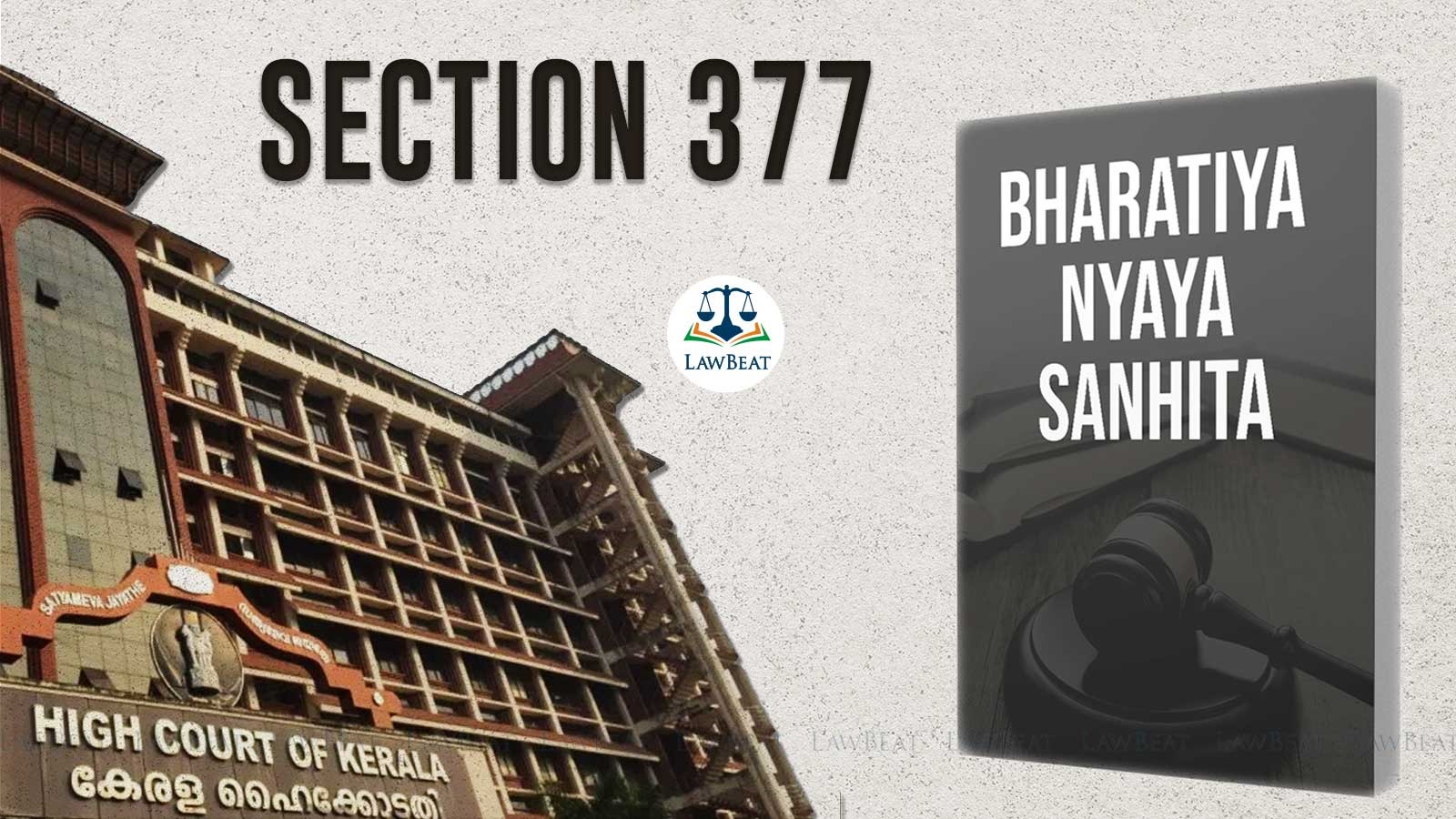Kerala HC Highlights Gap in New Criminal Law While Dismissing Case Against Husband Under Section 377

The court remarked that there is absence of such a provision under the new criminal procedure law, however, the rationale for this omission is not explicitly stated in the Bharatiya Nyaya Sanhita
The Kerala High Court has recently observed that the Bharatiya Nyaya Sanhita (BNS), which replaced the Indian Penal Code (IPC), does not have an equivalent provision to Section 377. The court highlighted the lacuna in the new criminal law while quashing criminal proceedings initiated by a woman against her husband alleging the commission of an offence under Section 377 of the IPC.
The court, presided over by Justice A. Badharudeen, made the observation wherein a wife registered a complaint against her husband, alleging offences under Section 377 along with Section 498A of the IPC, dealing with unnatural sexual offences and ‘Husband or relative of husband of a woman subjecting her to cruelty’, respectively. The police filed a report stating the case was false, but the wife filed a protest complaint, leading to the Magistrate taking cognizance of the offences.
The court reviewed the key question “whether an offence under Section 377 of the IPC can be applied to the facts of this case?”. It opined that after the 2013 amendment to the definition of rape in Section 375, forcible acts of oral sex committed by a male accused on a female victim constitute rape, which is exempt for husbands. Notably, Explanation (2) of Section 375 of the IPC clarifies that sexual intercourse or acts between a man and his wife, provided she is over fifteen years of age, do not constitute rape. The court found that the complainant is an adult and stated : “Thus it has to be held that allegation of commission of offence punishable under Section 377 of IPC by the husband against the wife would not stand in the eye of law.”
Additionally, the court noted : “It is relevant to note in the new criminal procedure law, viz., Bharatiya Nyaya Sanhita (hereinafter referred to ‘BNS’ for short), no pari materia provisions equivalent to Section 377 of IPC is incorporated. The rationale behind this omission is not stated in BNS. But it is perceivable that almost all forms of sexual overtures/assaults against minors aged below 18 years (both male and female) are covered by the provisions of the Protection of Children from Sexual Offences Act, apart from pari materia provisions equivalent to Section 375 of IPC incorporated in Sections 63 to 69 of the BNS,” deeming the cognizance taken by the Magistrate unsustainable.
However, the court refused to quash proceedings for the offence under Section 498A of the IPC stating that “prima facie, the allegations to constitute commission of offence punishable under Section 498A of IPC is made out, and the allegations are not general, sweeping and omnibus allegations.”
The court, resultantly, allowed the petition partly, quashing the charge under Section 377 while allowing trial for the offence under Section 498A.
Cause Title: SAYYID IMBICHI KOYA THANGAL @ BAYAR THANGAL v STATE OF KERALA [CRL.MC NO. 4759 OF 2024]
